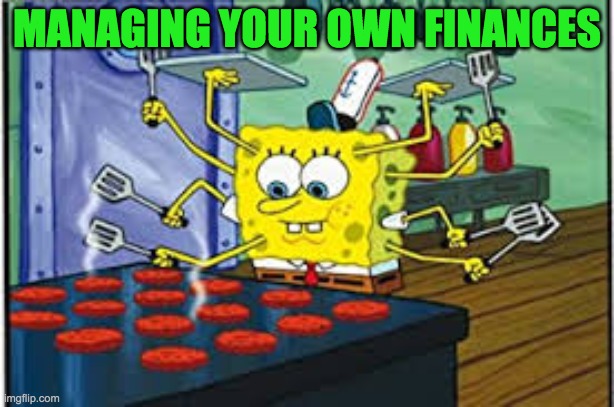Interested in Investing? Not Sure Where to Start? Keep Reading!
There’s many people who hear about their friends investing and feel like they should be doing it–but how? In what? What actually is a stock? What the hell is a cryptocurrency? Bitcoin right? How do you own gold? Too many questions and most people give up.
I wanted to write this for the people that are new (or perhaps that are experienced who could use a reminder) of some tips that I’ve learned over the years from investing by own money.
Firstly, please consider subscribing for custom stock reports + global opportunities from on-the-ground travels. It’s an affordable fee.
For newbies just getting started remember this…This is crucial:
90% of retail investors, lose 90%, in 90 days. So out of 100 people investing 1,000 dollars--90 of them will lose 900 of those dollars in 3 months.

Don’t Give Up Just Yet
Number 1:
Use “Live Bullets”. Don’t invest with your buddy’s allowance money or using those gaming programs–start small and within what you know–but start with your own money. You will be FORCED to pay attention to what you’re doing and develop a tested conviction behind your decisions. It’s good to feel losing (& winning!) to practice controlling your emotions.
Number 2:
Don’t get caught up in the ever-changing headlines. They will always be changing their titles, sometimes twice in opposite directions in one trading day. See the forest for the trees and zoom out to see where a certain sector is likely headed with a time frame in mind. There’s many ways to get to the solution, and try to ignore all the media noise in the meantime. In order to do this however, you do need some level of expectation or a time horizon. Some positions are great for a 3-year time horizon but stupid for 3-month time horizon & vice versa. Know what is best for you and try to gauge expectations in the future–if not, you’ll be susceptible to the sudden news headlines & they will mess with your head.
Number 3:
Following up from the last point, if you have 90% of your capital deployed in a long-term positioning 5-10 years, you have to realize that you’re only operating with 10% capital NOW. If this capital runs into trouble, you’ll be forced to tap into your shares that you’ve been already acquired and ruin your plans. So, be sure that if you’re aiming for the long game you have enough to survive day to day. In other words, it’s okay to lose the battle if you’re looking to win the war–but make sure that battle isn’t the end of your war!
Number 4.
One should not be discouraged by the amount of capital they have. Slow and steady wins the race. In experience, people with capital are more interested in what you bring to the table and what ideas you have rather than comparing who has the largest bank account. Just because you may see new acquisitions take place in the 100s of thousands of shares, doesn’t mean you can’t work within your limits to find a safer home for your capital. In my opinion, generally, i’m happier having my capital inside of an oil company than I am a savings account, even if it’s not a “huge amount”.
Number 5.
Be careful of commissions. Every time you click buy and sell the broker is taking a cut, albeit small, it adds up and takes away from you for maybe no good reason. For instance, if I go shopping for stocks in Australia I’m charged 6 AUD per buy (regardless of the order size) so I must know i’m confident in this decision and buy in a large amount.
Never Miss a Beat. Monthly Online Newspaper
Get the Full Package by subscribing and picking up the Monthly News Service. The former is researched, thorough articles while the news service are relevant international events that YOU need to know
Number 6.
When you invest with option contracts (buying Calls or Puts), you don’t just have to be right, you really have to be right. This is because of the premium you’re paying that pushes up your breakeven price (beyond that of strike). All told, the underlying may have to make a >20% move to hit this breakeven price, which may be challenging to see with no events and a soon expiry. Also, even if you are really correct, ideally you want to be really above the break even (for obvious reasons) but to ensure that there’s going to be sufficient volume for you to ‘cash out’ of the contract. I’ve had contracts worth far more than what I’ve paid for it, but without a buyer to come by, it wasn’t worth anything. It’s like that saying, how rich are you if you’re lone on an island try to sell a trillion dollar coin?
Number 7.
If your protein powder, winter coats or furniture goes on sale, you’re ecstatic. Keep this same mentality if a stock falls with no fundamentals changing–it just means that you’re getting the same company for a cheaper price.
Number 8.
Compounding works. Check out here to play around with it. https://www.investor.gov/financial-tools-calculators/calculators/compound-interest-calculator
If you’re interested in investing for the long term, the value of dividends is truly staggering. Again, the trouble is having to wait years and years–it’s much more fulfilling if you reliably nail a 200% stock right away–but remember there’s institutions with literally 100,000X your net wealth trying to do the same and only a handful of them are successful.
Number 9.
Cash has no yield (and yes, long term its doomed) but it does care utility in a portfolio. It reduces the risk in ones portfolio (think of it as a steadying agent against volatility). Cash also enables you to go shopping if things get really cheap and there’s some great buying opportunities.
Number 10.
Don’t over-leverage. Banks and brokerages are just dying to lend you money to play with (remember the 90 day rule?) with the idea that you’re going to blow up your account. Doing this isn’t even a problem for retail investors but it’s not uncommon for professional fund managers to blow up by getting in too deep with derivatives or borrowed funds that go against them.
Please try to find time to share this with friends and family! & explore my site further
#StayOnTheBall


